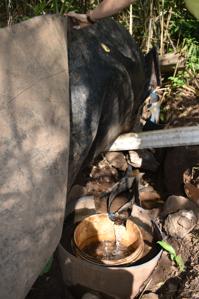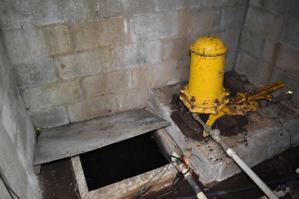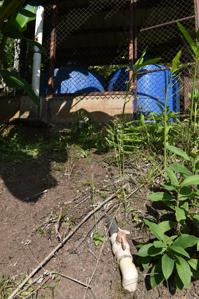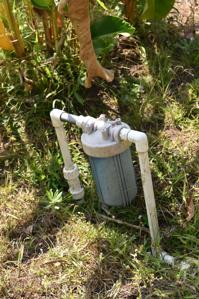Decentralised drinking water supply in Costa Rica
There are many discussions about the advantages and disadvantages of decentralised water supply. In the Netherlands I make use of a very well functioning centralised system. Here in Costa Rica my house is supplied by a decentralised system. Water is abstracted from a spring and is transported to a collection well from where it is pumped to some reservoirs higher up hill and from there it supplies my house by gravity (after some type of filtration). From my own experience I can now reflect on such a system. First of all the advantages: the water is pure (although not checked), no chemical additions, no chlorine, no advanced treatment; it tastes wonderful and we drink it straight from the tap without direct problems; it is cheap, because we only pay the energy costs for pumping (investments are already done in the past and are part of the house rent); since we must activate the pump manually, we are very much aware of the water we use, when toilets are leaking, or too much water is used for gardening, with the consequence that we change our patterns. However, there are also disadvantages to mention: In periods of (relative) droughts less water is available in the spring and the system can fall dry; when the collection well is dry (or you forget to activate the pump when the well is full), there is no water in the high reservoirs and you do not have water in your house; when you re-establish the situation your in-house system is full of air and you still have difficulties to obtain sufficient water for e.g. showering. The good thing is that I am on sabbatical leave and that I can afford to spend time in running the system, but… coming back to the Netherlands I will certainly appreciate the excellent water supply (with excellent quality control) by, in my case, Dunea…. Below some impressions of the decentralised system of my house.









Comments are closed.